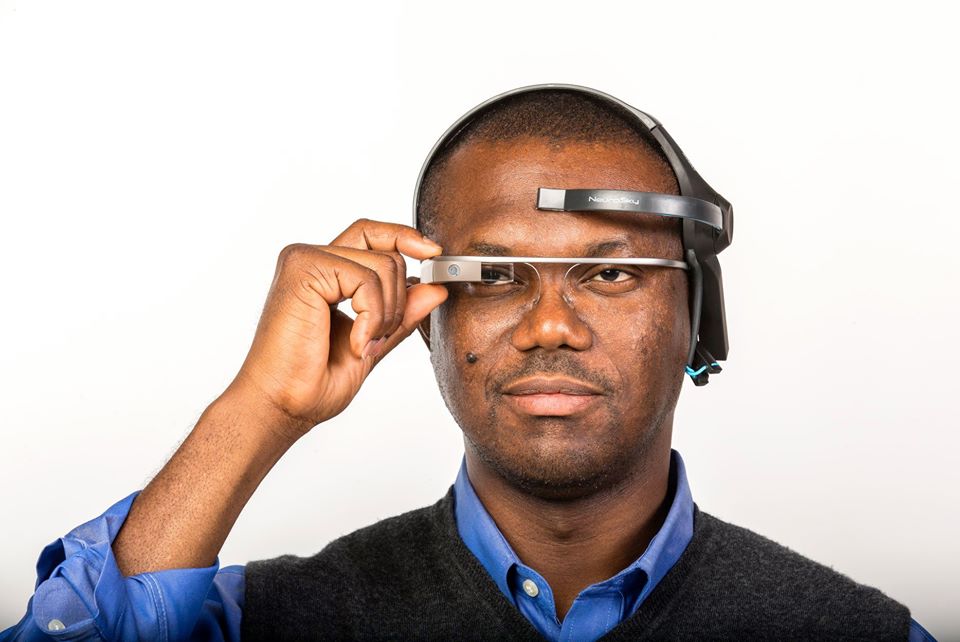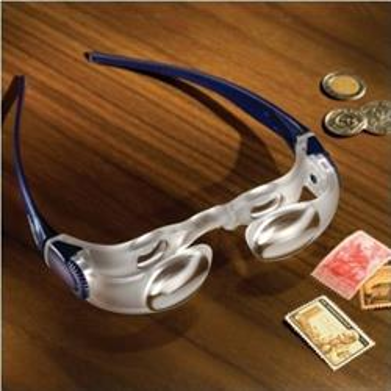
When low vision ended Zuby Onwuta’s military and medical career, he turned his focus to engineering and used his problem-solving skills to develop a device that allows people to enlarge something, just by thinking.
Pursuing A Dream
Zuby grew up in Onitsha, Nigeria, dreaming of becoming a medical doctor in the United States. After high school, he won the visa lottery and boarded a plane with “his dream, $200, and a duffel bag”.
When he realized that $200 was not enough to fund medical school, he joined the U.S. Army to help fund his education. Two years into his military service, Zuby began to struggle with his vision. He was diagnosed as legally blind due to Stargardt’s Macular Dystrophy, and was medically discharged from the Army. He was no longer able to continue with his dream of becoming a doctor.
New Beginnings
Zuby, who had always enjoyed problem solving, decided to go into computer engineering. Throughout his education, his eyesight continued to get worse. After earning degrees from Harvard and MIT (Massachusetts Institute of Technology), Zuby worked for firms such as Goldman Sachs & Co, IBM, and Nokia and served clients including the White House and NASA.
His engineering career came to a halt however when, in his search for answers to his degenerating vision, he went to John Hopkins University and was diagnosed with two additional vision impairments, cone dystrophy, and rod dystrophy.
Turning Problems into Solutions
Zuby was frustrated not only with the effort and expense of gaining his complete diagnosis from 300 different eye care professionals, costing over $500,000 but also with the fourteen years it took to find answers. Determined to aid early diagnosis in others, he developed Kenti, an app available in the Apple App Store which shrinks the time it takes to diagnose vision impairments by monitoring children at play over time and detecting patterns of visual decline.
Again, Zuby’s skill for problem solving moved him forward. He identified that the downside of current low-vision assistive technology (AT) is its manual operation, meaning that users had to activate the device with their hands For those with low-vision, the current solution of using a magnifier is not as intuitive nor responsive as the experience of those who do not have low-vision. The AT which would truly break down visual barriers needed to be hands free, automatic and effortless. Zuby thought, “Is it possible to think and bring something into focus?”
“Is it possible to think and bring something into focus?”
Zuby Onwuta
The result of this question was his development of the Think & Zoom: Brain Control for Blind Assistive Tech. The Think & Zoom is an app which works with devices that can read your mind (electroencephalography or EEG readers and Google Glass. It uses the EEG reader to measure brain waves, Think & Zoom then analyzes when the brain is struggling to focus and then provides the appropriate magnification for the user using the associated Google Glass.
Zuby Onwuta is a Harvard- MIT trained innovator, US Army veteran, four-time TEDx Speaker, and legally blind Disability Advocate at the United Nations and US Congress and strives to “Inspire and empower all people to dream BIG and believe in themselves, so they can pursue their goals and achieve their dreams.” To learn more, visit Zuby Onwuta’s website.

Check out magnifying glasses and more assistive technology at the NATADS Inventory website.




